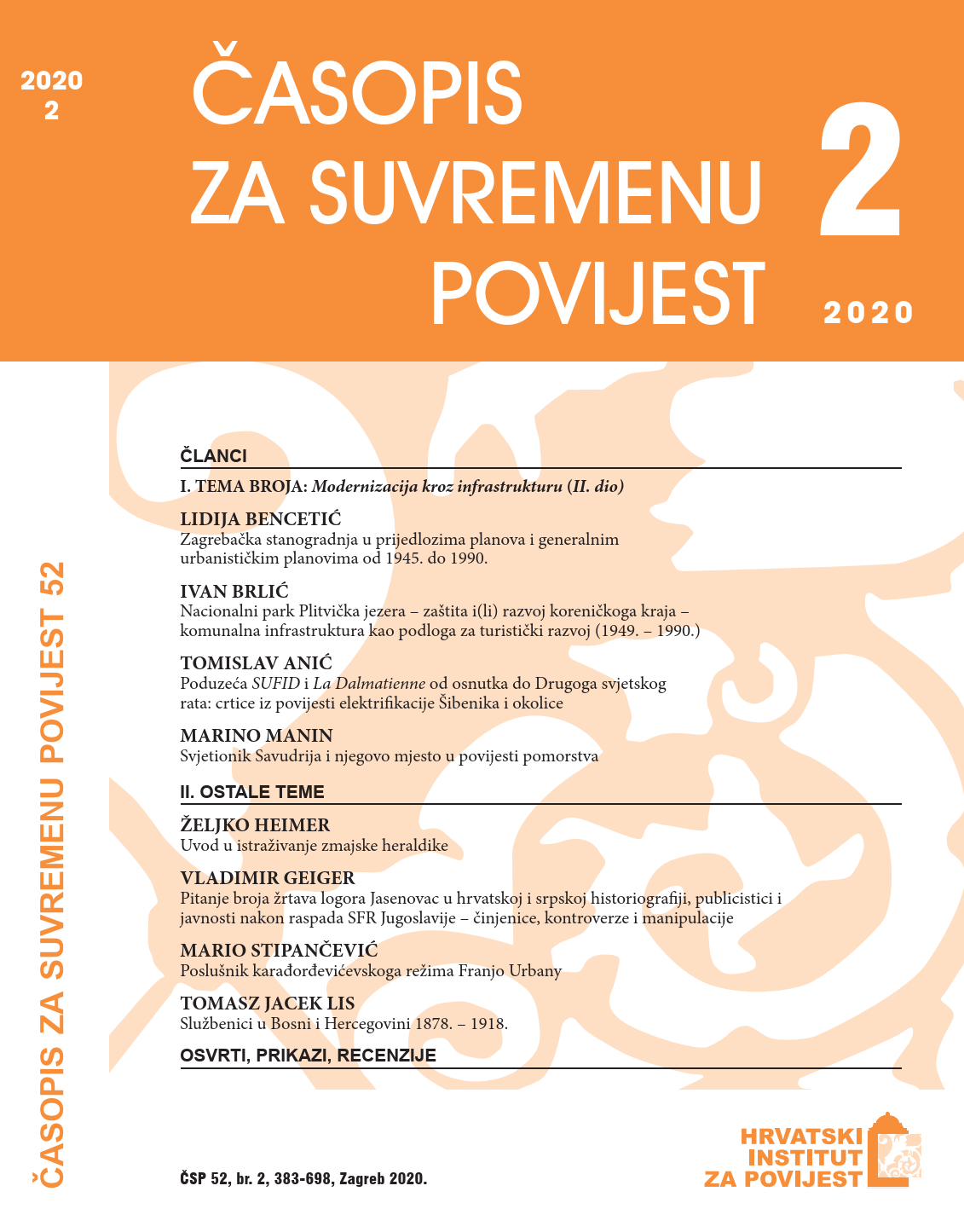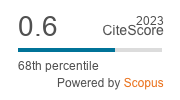Zagreb Housing Construction in Draft Plans and Master Plans from 1945 to 1990
DOI:
https://doi.org/10.22586/csp.v52i2.10442Keywords:
Zagreb; Croatia; Yugoslavia; socialism; housing construction; housing problem; master plan; regulatory bases; urban planningAbstract
The issue of securing housing for each member of a society as well as the quality of its construction are among the key challenges faced by every society as a whole, but also by every political system. Housing was one of the main social and political issues during the socialist period in Croatia. In urban areas, the goal was to create an all-encompassing housing policy that would be implemented via master plans and urban planning programmes. This problem was worked on continuously by the Urban Planning Institute of Zagreb City and its legal predecessors, primarily through urban planning proposals and plans published in 1949, 1953, 1965, 1971, and 1986. The research presented here is based on the master plans of Zagreb (regulatory bases), one urban development programme, and two urban development proposals: Vlado Antolić, ‘Regulacioni plan i direktivna regulaciona osnova Zagreba’ [Regulatory Plan and Directive Regulatory Basis of Zagreb], Arhitektura (1949); Zagreb: direktivna regulatorna osnova Zavoda za urbanizam NOGZ 1953. [Zagreb: Directive Regulatory Basis of the Zagreb City People’s Committee Urban Planning Institute, 1953] (1953); Urbanistički program grada Zagreba: smjernice za razvoj [Urban Planning Programme of the City of Zagreb: Development Guidelines] (1965); Generalni urbanistički plan grada Zagreba: elaborat [Zagreb City Master Plan: Report] (1970); Generalni urbanistički plan grada Zagreba: sažetak [Zagreb City Master Plan: Summary] (1985). This paper attempts to determine which systemic solutions were anticipated, what were the projections of the city’s development and population trends, and how the urban planning proposals and plans were implemented.
Downloads
Published
How to Cite
Issue
Section
License
Copyright (c) 2020 authors and journal

This work is licensed under a Creative Commons Attribution-NonCommercial 4.0 International License.
Copyright holders are the publisher Croatian Institute of History and the authors. Journal of Contemporary History is an Open Access journal. Users are allowed to read, download, copy, redistribute, print, search and link to material, and alter, transform, or build upon the material, or use them for any other lawful purpose as long as they attribute the source in an appropriate manner according to the Creative Commons licence CC BY-NC. The papers published in Journal of Contemporary History can be deposited and self-archived in the institutional and thematic repositories providing the link to the journal's web pages and HRČAK. Journal does not charge article processing charges (APC). The editors assume no responsibility for statements of fact or opinion made by contributors.




